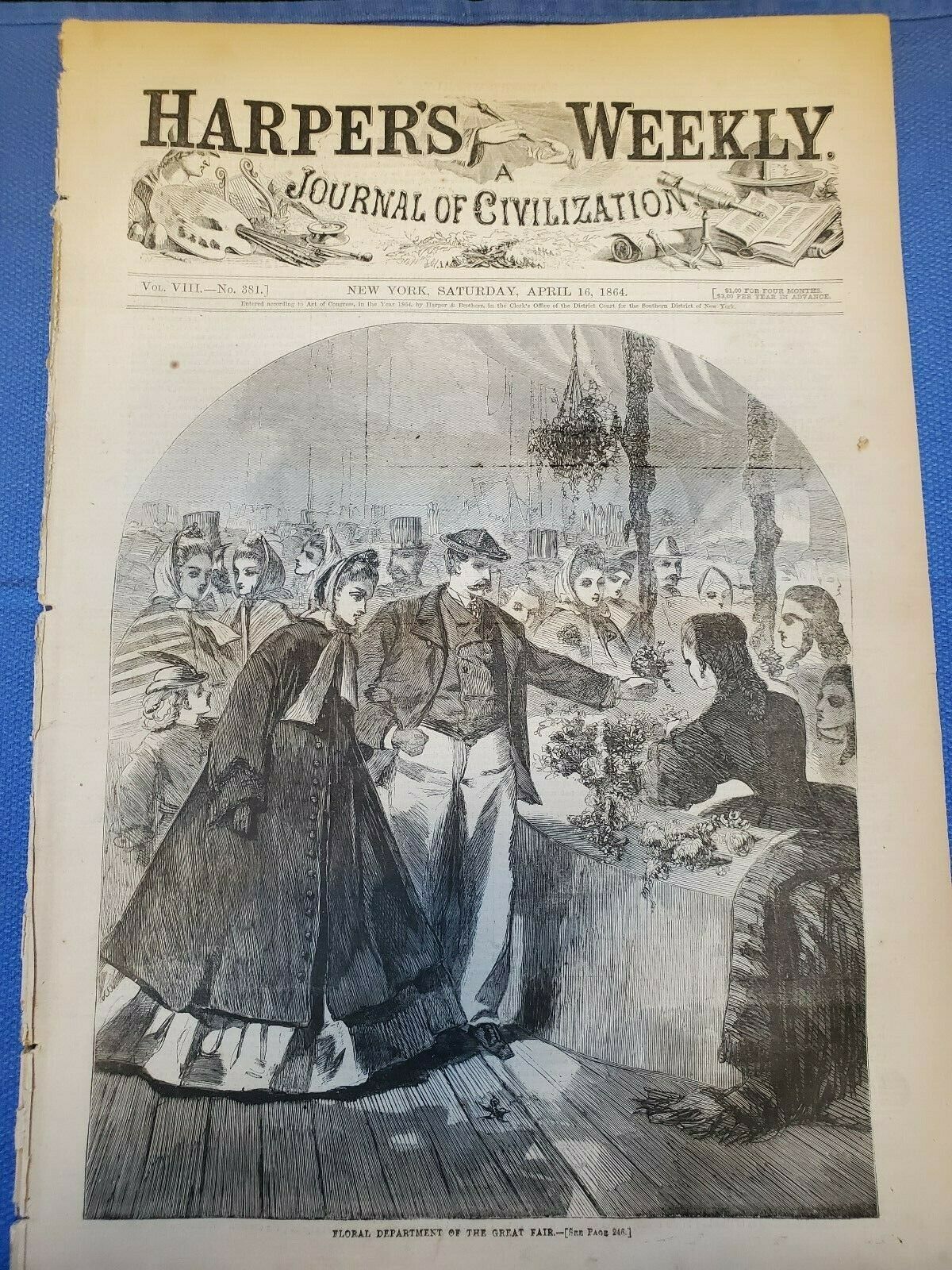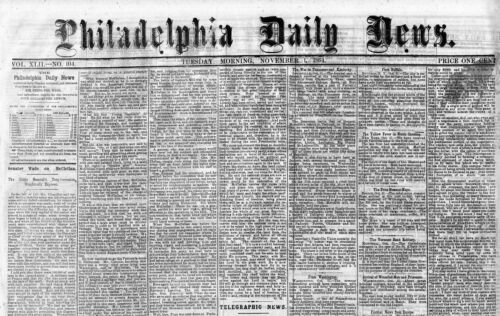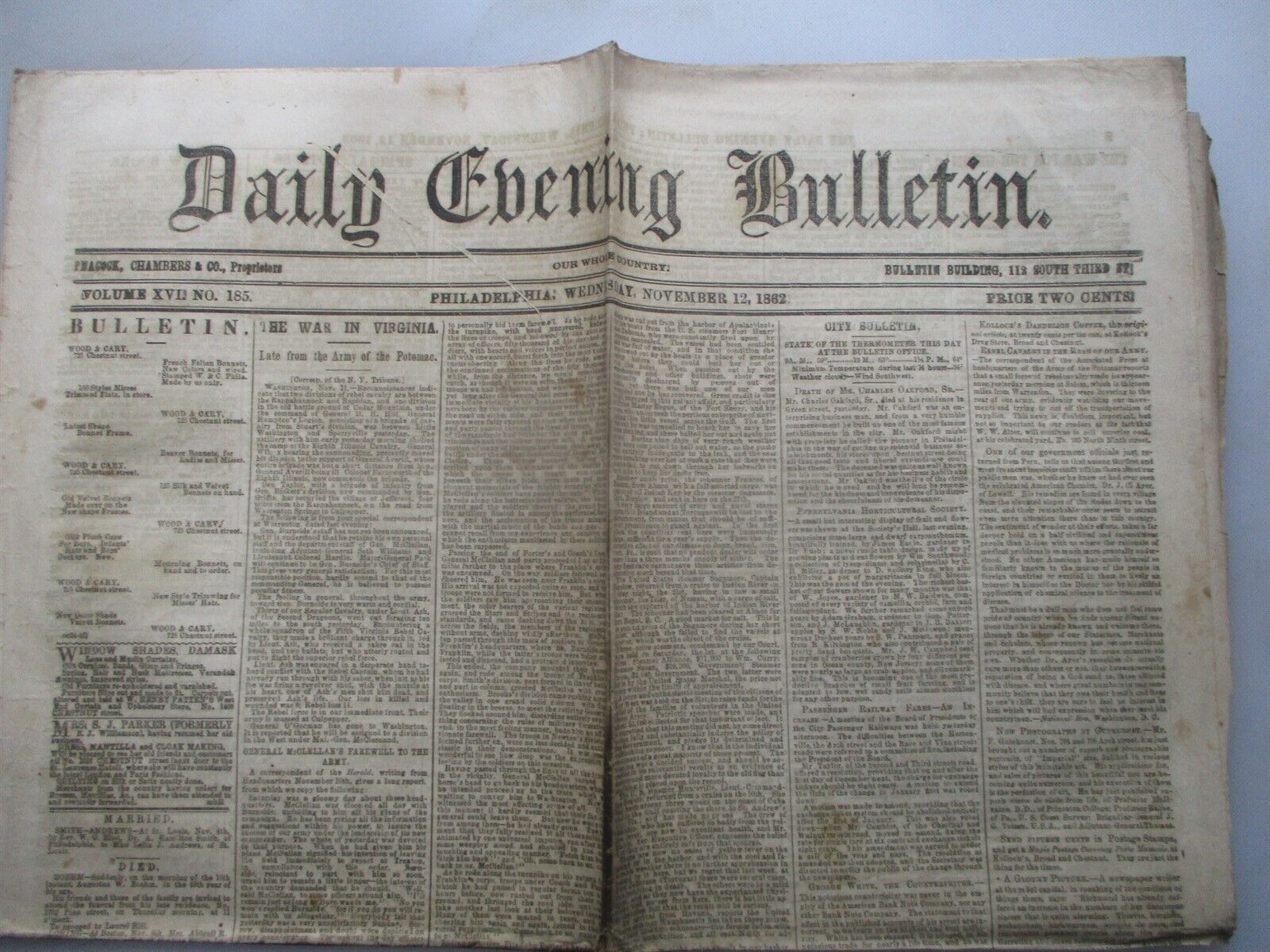-40%
Homer's Metropolitan Fair, Order Number 28, Harper's Weekly Apr 16, 1864
$ 10.55
- Description
- Size Guide
Description
You are bidding on a complete original issue of Harper's Weekly published Apr 16, 1864, No. 381. The pages measure 11 x 16 (16 x 22 for center-folios) and this issue includes pages 241-256. All pages may not be shown due to space constraints. Great engravings, humor, science, literature, news of the day and wonderful old ads.It is 1864. The War Between the States (Civil War) presses on and it consumes the news. It is a presidential election year and Lincoln will run again against ???
Look at my feedback and see
sane pricing at work!
Cover page engraving:
Floral Department of the Great Metropolitan Fair, attributed to
Winslow
Homer
General Order No. 28
Metropolitan Fair: Picture Gallery, Fire Department, Building Plans, New Jersey Department, Grand Opening
Grand Hall of the Fair Building, Fourteenth Street, center-folio
General Smith
and Late Hon.
Lovejoy
Last page ads and cartoon.
Sweet
Winslow Homer
cover page. Not one of his most famous but an early effort.
Nice edition with no major problems. I am not a book or paper dealer so please view pictures to determine condition.
T
his lot will be packaged in a protective acetate sleeve, packed flat and mailed first class USPS. I will pay half of the just under .00 cost for first class.
Thanks for looking and please visit my present and upcoming listings of Harper's Weekly Issues.
Harper's Weekly, A Journal of Civilization was an American political magazine based in New York City. Published by Harper & Brothers from 1857 until 1916, it featured foreign and domestic news, fiction, essays on many subjects, and humor, alongside illustrations. It carried extensive coverage of the American Civil War, including many illustrations of events from the war. During its most influential period, it was the forum of the political cartoonist Thomas Nast.
Thomas Nast was a German-born American caricaturist and editorial cartoonist often considered to be the "Father of the American Cartoon". He was a critic of Democratic Representative "Boss" Tweed and the Tammany Hall Democratic party political machine. Among his notable works were the creation of the modern version of Santa Claus and the political symbol of the elephant for the Republican Party. Contrary to popular belief, Nast did not create Uncle Sam, Columbia, or the Democratic donkey, though he did popularize these symbols through his artwork. Nast was associated with the magazine Harper's Weekly from 1859 to 1860 and from 1862 until 1886.



















